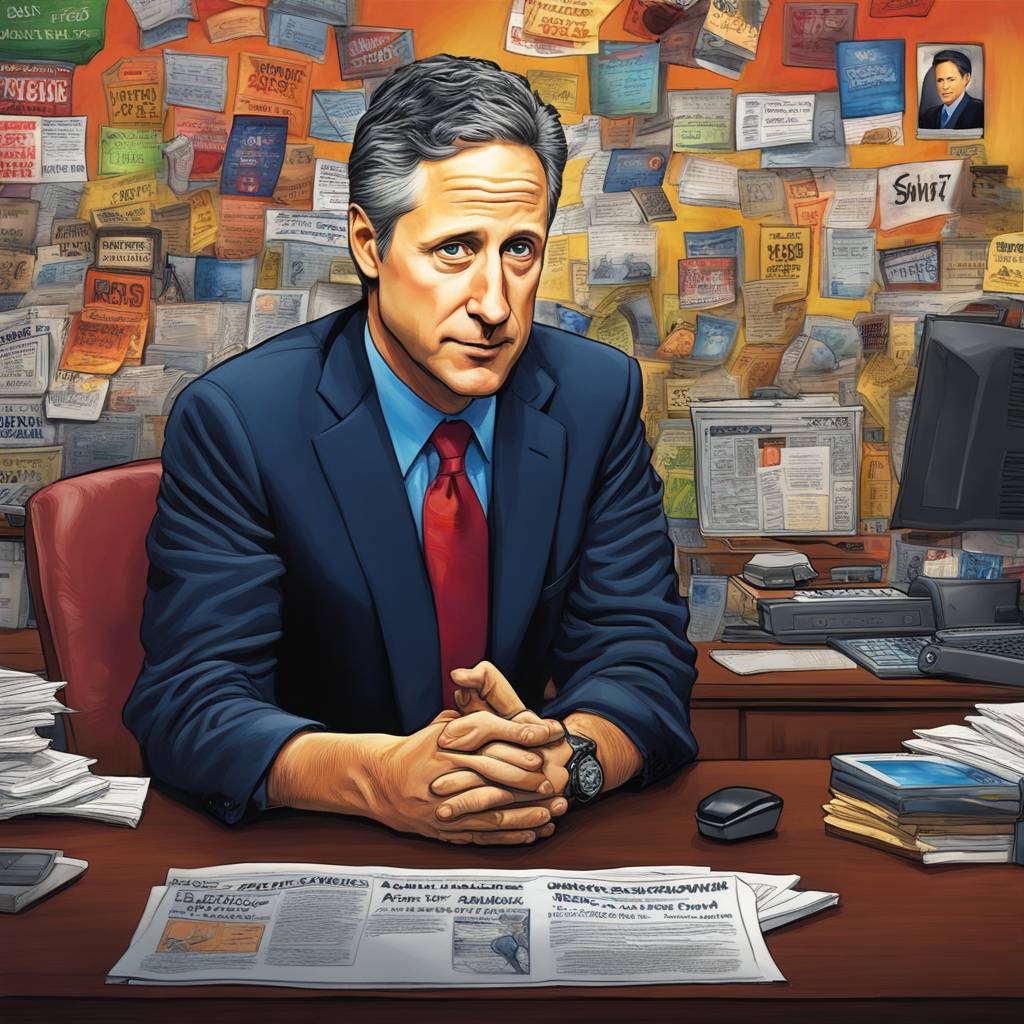Jon Stewart recently revealed on “The Daily Show” that his short-lived show on Apple’s streaming TV platform was abruptly cancelled due to restrictions placed on discussing artificial intelligence and interviewing Federal Trade Commission chair Lina Khan. Stewart had invited Khan as a guest on his Comedy Central program, where they discussed Big Tech monopolies in light of the recent antitrust lawsuit against Apple that accused the company of monopolizing the smartphone market. Despite the FTC not being involved in the lawsuit, it has recently sued other tech companies, including Amazon.
Stewart mentioned that Apple had prohibited him from discussing AI, which he had touched upon in the first act of his show where he talked about the “false promise” of the technology. He questioned why Apple was so sensitive about these topics and why they were reluctant to have these conversations in the public sphere. Khan responded by highlighting the dangers of concentrating power and decision-making in a small number of companies. She also hinted at potential tech regulations, mentioning that the FTC and Justice Department are investigating how companies may be using algorithms for price-fixing.
“The Problem with Jon Stewart,” which aired on Apple TV+ for two seasons, faced cancellation over concerns Apple had about the subject matter planned for upcoming shows, including topics like China, Israel, and AI. Despite being given creative control over the show, Stewart grew frustrated with Apple’s restrictions on guest lists and show subjects. His return to “The Daily Show” earlier this year was seen as a welcome development, bringing back some of the show’s cultural relevancy that had diminished during Trevor Noah’s hosting.
Stewart’s conversation with Khan shed light on the challenges of tech companies like Apple wielding significant power and control over the information shared in the media. The incident highlighted concerns about censorship and the need for transparency in discussions about important topics like AI and antitrust issues. As regulators like the FTC and Justice Department continue to scrutinize tech companies for potential violations, it is clear that there will be ongoing debates and potential regulations to address these complex issues.
Overall, Stewart’s revelations about his experience with Apple and the challenges he faced in discussing certain topics on his show underscore the broader issues of corporate influence and censorship in the media landscape. The incident serves as a reminder of the importance of open dialogue and the risks associated with allowing a small number of companies to exercise significant control over the flow of information and ideas in society. As discussions around tech regulations and antitrust enforcement continue to evolve, it will be crucial for stakeholders to consider the implications for freedom of speech and the public interest.













